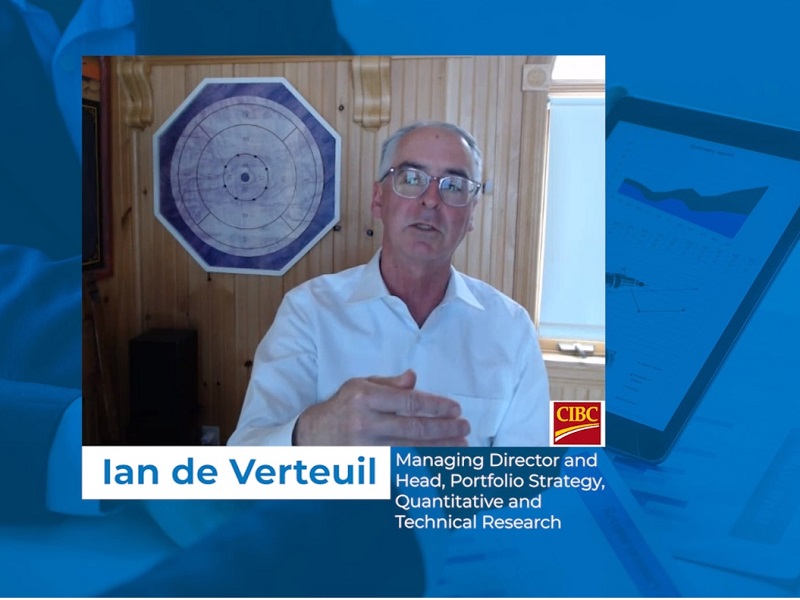
Don’t expect your clients to make as much on stocks this year as they did in 2021, portfolio managers said this week during the BMO ETF Economic Forum.
“We expect relatively mundane equity returns,” said Ian de Verteuil, managing director and head of portfolio strategy, quantitative and technical research with CIBC Capital Markets, during a virtual session on portfolio construction.
Co-panellist Alfred Lee echoed the sentiment.
“If you look at the equity market returns we saw [in 2021] on the TSX and S&P 500 — 25% to 28% on a total return basis — I think it’s pretty unrealistic to assume we are going to get the same degree of returns,” said Lee, director, portfolio manager and investment strategist with BMO Asset Management.
“Investors have to dial back their expectations [on stock market gains in 2022] to a degree,” Lee said. “Are we going to see high single digits? I think that is in the realm of possibilities. But when you look at the markets this year, there are a lot more risk factors compared to 2021.”
Those risks include sustained inflation and rate hikes by central banks.
Within equities, some sectors may have better returns than others, suggested panellist Alex Perel, head of ETF services with Scotiabank.
“Picking sectors is a bit of a divining rod kind of exercise,” Perel said. “Consumer discretionary, financial and energy should be good places to hide.”
The session was recorded on Jan. 19, and Perel said he was “hopeful” that Covid-19 restrictions would be lifted by the time it aired.
Ontario restaurants resumed indoor dining beginning Jan. 31, while the Quebec government has plans to let gyms and spas open on Feb. 14.
“[Consumer] discretionary stocks will continue to feed into the pent-up demand,” Perel said.
As for energy and materials, those sectors should face some demand due to reconstruction after recent floods in British Columbia, he said.
Further, “Energy has a significant geopolitical lever in the world,” Perel said. “There are considerations around what will happen with the Ukraine.”
European Union nations get around 40% of their natural gas supplies from Russia, The Associated Press reports, and Russia now has thousands of troops stationed near Ukraine’s northern and eastern borders.
German leaders have promised that the future of the new Nord Stream 2 pipeline — built to move Russia’s natural gas directly to Germany — would be “on the table” if Russia moves against Ukraine, AP reports.
Such issues could have a positive impact for “safe sources” of energy, Perel suggested. The Canadian energy sector has less geopolitical risk than Eastern Europe, he said.